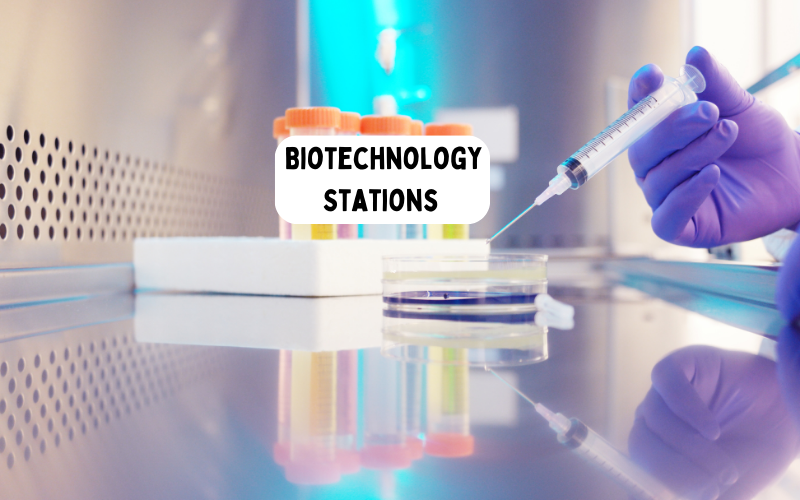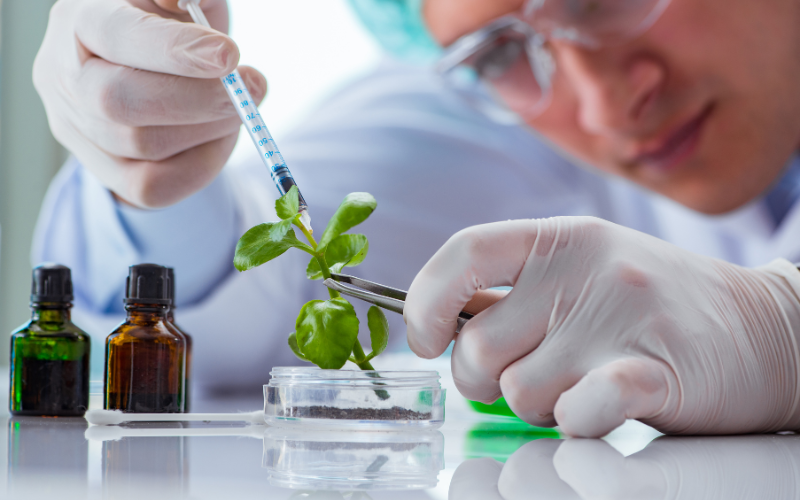
Biotechnology Stations Answer Key: Unlocking the Secrets of Innovation
The field of Biotechnology Stations is undergoing constant scientific breakthroughs and revolutionary discoveries.
Fueling rapid advancements and transformative changes across various sectors such as healthcare, agriculture, and environmental sciences.
To stay at the forefront of this innovative field, it is crucial to comprehend the fundamental principles and key components of biotechnology.
biotechnology stations quizlet
Biotechnology on Quizlet is interactive learning module designed to enhance students’ understanding of various aspects of biotechnology.
These stations provide a dynamic and engaging way to explore topics such as genetic engineering, DNA sequencing, cloning, and gene therapy.
Each station typically includes a combination of multimedia resources, interactive activities, and quiz-style questions to test and reinforce knowledge.
By utilizing these biotechnology stations on Quizlet, students can actively participate in their learning process, deepen their understanding of complex concepts, and develop critical thinking skills.
These interactive modules offer a valuable tool for educators and learners alike, promoting hands-on learning and fostering a deeper appreciation for the fascinating world of biotechnology.
Biotechnology stations Biology Roots answer key

The Biotechnology Stations Biology Roots answer key serves as a valuable resource for students and educators alike who are utilizing the Biotechnology Stations program offered by Biology Roots.
This answer key provides comprehensive solutions and explanations to the questions and activities presented in the Biotechnology curriculum.
With the help of the answer key, students can assess their understanding of the material covered in the stations, reinforce their knowledge, and gain clarity on any areas of confusion.
Educators can also utilize the answer key as a guide to effectively evaluate students’ progress and provide targeted feedback.
The Biotechnology Stations Biology Roots answer key ensures a seamless learning experience, promoting comprehension and mastery of biotechnology concepts within the classroom or self-paced study.
Understanding Biotechnology
Biotechnology laboratories are specifically designed spaces where scientists and researchers carry out experiments and devise pioneering solutions through the utilization of living organisms, biological systems, and cutting-edge biotechnological methods.
These laboratories are furnished with advanced tools, equipment, and resources that empower scientists to delve into the complexities of life at the molecular level.
By capitalizing on the capabilities of biotechnology laboratories, scientists can unlock the immense potential of living organisms to address critical challenges and pioneer revolutionary products and therapies.
The Role of Biotechnology Stations in Medicine
Advancements in Pharmaceuticals
Biotechnology facilities are integral to the realm of medicine, acting as focal points for cutting-edge research and the creation of groundbreaking pharmaceuticals.
Through the application of genetic engineering, researchers possess the capability to alter organisms, enabling them to generate therapeutic proteins, vaccines, and precise drug delivery systems.
Biotechnology laboratories offer the essential infrastructure to propel these technologies forward and expedite the introduction of life-saving medications into the market.
Gene Therapy and Personalized Medicine
Furthermore, biotechnology laboratories are at the forefront of advancing gene therapy and personalized medicine.
Scientists have the ability to manipulate genes, empowering them to correct genetic disorders and develop personalized treatments.
Biotechnology laboratories, utilizing gene editing techniques like CRISPR-Cas9, provide hope to patients afflicted by formerly untreatable conditions, thereby paving the path for a new era of healthcare.
Biotechnology Stations in Agriculture

Crop Improvement and Genetic Modification
Biotechnology stations also contribute significantly to the agricultural sector. Through genetic modification.
Researchers possess the ability to enhance various traits in crops, such as yield, pest resistance, and tolerance to environmental stresses.
By leveraging the capabilities of biotechnology laboratories, scientists can develop genetically modified crops that provide enhanced nutritional value.
Diminished reliance on chemical pesticides, and augmented ability to withstand shifting climatic circumstances.
These advancements are essential for guaranteeing food security worldwide and fostering sustainable agricultural practices.
Precision Farming and Biotechnological Innovations
Biotechnology enables the development of precision farming techniques. By utilizing sensors, robotics, and data analytics.
Scientists can optimize crop management techniques and substantially enhance agricultural productivity.
The biotechnological progress in precision farming holds immense potential to transform the methods of cultivating.
Harvesting, and distributing crops, resulting in greater efficiency and environmentally conscious agricultural practices.
Biotechnology Stations and Environmental Science
Bioremediation and Waste Management
Biotechnology also has a critical role in tackling environmental challenges. Through bioremediation.
Scientists can employ living organisms to eliminate pollutants and contaminants from soil, water, and air.
Biotechnology offers the necessary infrastructure for studying and optimizing these biological processes, thereby contributing to cleaner environments and sustainable resource management.
Furthermore, biotechnology stations aid in the development of innovative waste management solutions, turning waste into valuable resources through biological processes.
Biofuel Production and Renewable Energy
Another exciting application of biotechnology in environmental sciences is biofuel production.
By leveraging the metabolic capabilities of microorganisms, researchers possess the capacity to convert organic materials into biofuels like ethanol and biodiesel.
These renewable energy sources offer a sustainable and environmentally friendly substitute for fossil fuels, effectively reducing greenhouse gas emissions and aiding in the mitigation of climate change.
Biotechnology laboratories play a crucial role in advancing biofuel production technologies and optimizing the efficiency of these processes.
Conclusion
Biotechnology stations Innovation is driving transformative advancements in various fields such as medicine, agriculture, and environmental sciences.
Cutting-edge tools, equipment, and resources enable scientists to work at the molecular level, utilizing techniques like genetic engineering and gene editing
Within these advanced facilities, scientists explore the complexities of life, unveiling its concealed mysteries and forging a path toward groundbreaking. Breakthroughs and revolutionary solutions.
The ongoing advancements accomplished in biotechnology laboratories carry immense potential for tackling global challenges and enhancing the quality of life. For numerous individuals.
By embracing the power of biotechnology, we can unlock a future where innovation knows no bounds.
FAQs
What are biotechnology stations?
Biotechnology stations are specialized facilities equipped with advanced tools and resources where scientists conduct experiments and research using living organisms. And biotechnological techniques.
Do neology stations contribute to medicine?
Biotechnology stations play a crucial role in medicine by facilitating the development of pharmaceuticals, gene therapy, and personalized medicine.
What is the significance of biotechnology stations in agriculture?
Biotechnology stations enable crop improvement, genetic modification, precision farming, and the development of sustainable agricultural practices.
What role do biotechnology stations play in environmental sciences?
Biotechnology stations aid in bioremediation, waste management, biofuel production, and the development of renewable energy sources.
How can biotechnology stations drive innovation?
Biotechnology stations provide scientists with the necessary infrastructure to conduct research, explore new technologies, and develop groundbreaking solutions across various. Industries.




